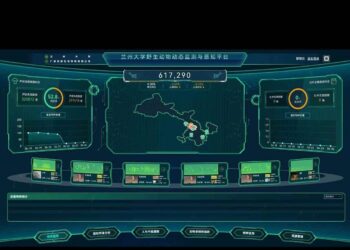In a development that has shaken Yemen and drawn international attention, Russian media outlets have reported the martyrdom of Ahmed Ghalib, the Prime Minister affiliated with the Ansarullah (Houthi) movement, following an alleged Israeli airstrike on the Yemeni capital, Sanaa. According to unverified reports circulating widely across social media platforms, Ghalib was killed in a targeted bombing on his residence in the Hadda district, southern Sanaa, along with three of his close colleagues.
Although the news has sparked widespread discussion in the region, official confirmation from Ansarullah sources remains pending, leaving the situation clouded with uncertainty. The Yemeni Ministry of Defense, however, has issued a statement urging the public to remain steadfast in supporting the Palestinian cause and acknowledging the credibility of targeted strikes on Yemeni leadership.
Who Was Ahmed Ghalib?
Ahmed Ghalib was a key political figure within Yemen’s Houthi-controlled administration. His career spanned multiple influential roles:
- Prime Minister Appointment: Ghalib was appointed as Prime Minister on August 10, 2023, within the Houthi-led political structure that governs significant portions of Yemen.
- Supreme Political Council Member: He was also an active member of the Supreme Political Council of Ansarullah, the highest governing body of the Houthi movement.
- Governor of Yemen’s Central Bank: Prior to his prime ministership, Ghalib served as Governor of the Central Bank of Yemen, a role of crucial importance in a country crippled by conflict, hyperinflation, and humanitarian crises.
His leadership positioned him as a symbolic figure not only in Yemen’s ongoing conflict but also in the broader regional struggle where Iran-backed groups, Israel, and Western allies remain at odds.
Details of the Reported Attack
The alleged Israeli strike reportedly targeted Ghalib’s home in the Hadda district of Sanaa, an upscale neighborhood that has often been a site for airstrikes due to its proximity to political and military leadership compounds.
- Location of the Strike: Southern part of the capital, Sanaa.
- Casualties: Alongside Ahmed Ghalib, three of his colleagues were killed. Their identities have not been publicly confirmed.
- Timing: Reports suggest the strike took place during the night, a common pattern in air campaigns aiming to target leadership figures while minimizing international visibility.
This development comes amid increased Israeli air operations in Yemen, which Tel Aviv claims are focused on neutralizing Houthi military installations and infrastructure allegedly being used to threaten Red Sea shipping routes and regional stability.
Israel’s Expanding Military Campaign
Israel’s involvement in Yemen marks a notable expansion of its military campaign in the Middle East. Traditionally, the conflict in Yemen has been seen through the lens of Saudi Arabia’s intervention against the Houthis, with backing from Western powers. However, Israel’s recent strikes indicate its growing concern over:
- Houthi attacks on Red Sea shipping – Houthis have claimed responsibility for drone and missile attacks on vessels linked to Israel and Western allies.
- Regional solidarity with Palestine – The Houthis have openly aligned themselves with Palestinian resistance movements, declaring solidarity amid the ongoing war in Gaza.
- Iran’s influence – As the Houthis are widely believed to be supported by Iran, Israel views the group as part of the “Axis of Resistance”, alongside Hezbollah in Lebanon and Hamas in Gaza.
By targeting high-ranking figures like Ahmed Ghalib, Israel appears to be signaling that Houthi leadership structures are not immune to its military reach.
Social Media and Public Reaction
The alleged martyrdom of Ahmed Ghalib has dominated Yemeni social media networks, with many users sharing condolences, tributes, and calls for vengeance. However, the absence of an official confirmation from Ansarullah has fueled speculation, leading to:
- Misinformation Risks: Some users caution that the reports could be part of a psychological warfare campaign aimed at weakening Houthi morale.
- Public Mourning: Supporters of Ansarullah have already begun mourning Ghalib’s reported death, treating him as a martyr in the resistance struggle.
- Regional Impact: Across the Arab world, activists have tied his alleged assassination to ongoing Israeli actions in Gaza, framing it as part of a wider pattern of targeting pro-Palestinian groups.
The Yemeni Ministry of Defense’s Statement
In response to the reports, the Yemeni Ministry of Defense released a statement urging:
- Continued public mobilization in support of the Palestinian people against what it described as Israeli genocide in Gaza.
- Resilience in the face of leadership targeting, suggesting that such attacks are credible but should not deter Yemen’s stance.
- National solidarity in resisting external aggression, portraying the strike as part of a larger geopolitical agenda against Yemen and Palestine.
This statement reinforces the Houthi narrative of resistance, seeking to rally domestic and regional support despite the potential leadership loss.
Broader Context: Yemen’s Role in the Regional Conflict
1. The Yemeni Civil War
Since 2014, Yemen has been engulfed in a devastating civil war, primarily between:
- Houthi rebels (Ansarullah), who control the capital and much of northern Yemen.
- The internationally recognized Yemeni government, backed by Saudi Arabia and the United Arab Emirates.
The conflict has created the world’s worst humanitarian crisis, with millions facing famine, displacement, and disease outbreaks.
2. Houthi Attacks Beyond Yemen
The Houthis have extended their operations beyond Yemen’s borders, targeting Saudi oil facilities, UAE infrastructure, and most recently, Israeli-linked maritime assets in the Red Sea.
3. The Gaza Connection
Since the escalation of the Israel-Gaza conflict, the Houthis have publicly pledged allegiance to Palestinian resistance, launching long-range drones and missiles aimed at Israel, though many have been intercepted.
International Reactions and Implications
While official reactions from major powers remain limited, analysts predict that this development could:
- Heighten regional instability – The targeting of Yemeni leadership risks further escalating Middle Eastern tensions.
- Increase Iranian-Israeli rivalry – As Houthis are widely supported by Iran, Israel’s direct strikes on Houthi leaders could push Tehran to respond indirectly.
- Complicate peace efforts – Ongoing UN-mediated peace talks between Houthis and Saudi Arabia may falter if leadership disruptions deepen mistrust.
- Boost Houthi resolve – Historically, assassinations of key figures often strengthen group cohesion rather than weaken it.
The Uncertainty Factor: Is the News Confirmed?
Despite widespread reporting, it is important to note that Ansarullah has not yet officially confirmed or denied Ahmed Ghalib’s death. This leaves open several possibilities:
- The reports could be accurate, with Ansarullah delaying confirmation for strategic reasons.
- Alternatively, the reports could be part of a disinformation campaign, aimed at creating panic within Houthi ranks.
- A third possibility is that Ghalib was injured but not killed, and his condition remains unclear.
Until Ansarullah issues an official statement, the situation remains fluid.
Conclusion
The reported martyrdom of Ahmed Ghalib, the Houthi-aligned Prime Minister of Yemen, in an alleged Israeli airstrike highlights the escalating regional tensions linking Yemen, Gaza, and Israel. If confirmed, his death would mark a significant escalation in Israel’s military operations, potentially reshaping both Yemen’s internal conflict and the wider Middle Eastern geopolitical landscape.
While uncertainty lingers over the authenticity of these reports, the symbolic weight of such an incident cannot be understated. For Yemen, it represents another tragic chapter in its long-running conflict. For Israel, it signals an aggressive extension of its security policy. And for the wider region, it underscores the deepening entanglement of multiple conflicts, with Yemen now firmly tied to the broader battle lines of the Middle East.

























